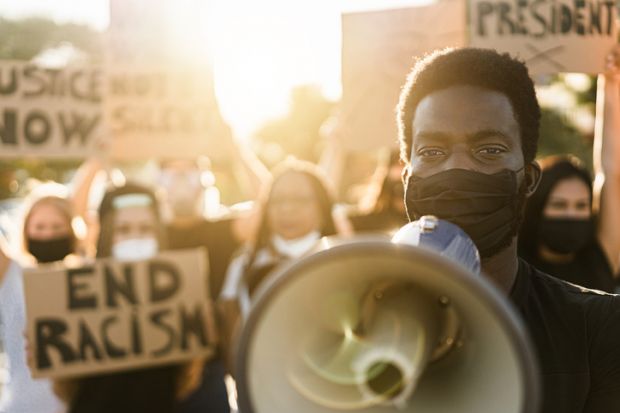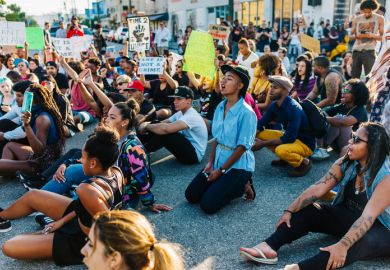During the current pandemic, England’s Office for Students has undertaken two major actions.
One, it is fair to say, concentrated on sexual harassment and misconduct. It was a reaction to the outrage created by the campaign website Everyone’s Invited, which contains testimonies about sexism and violence from women at more than half of UK universities. The resulting “statement of expectations” for higher education institutions is underpinned by the principle that all students should be protected from harassment and sexual misconduct from other students, staff and visitors.
The second intervention saw the OfS seek reassurance from institutions that they are prioritising all necessary measures to support students at this difficult time. And institutions have indeed responded to support their students – thanks in part to funding the OfS announced in 2018 to assist innovative collaborative approaches to improving students’ mental health outcomes.
During the pandemic, the OfS also made up to £3 million available to the mental health charity Student Minds, to lead the development of a targeted programme of support to complement the mental healthcare efforts already in place at universities.
So far, so good. Both these initiatives are commendable steps forward – even if it is disappointing that it required a social media campaign to push a public body into taking high-profile steps to address sexual harassment and assault.
But if the OfS really wants to rewrite the higher education book – rather than just issue the press release – then it must launch an initiative on race, too.
The pandemic’s disproportionate health and socio-economic impacts on ethnic minorities has highlighted underlying institutional inequalities. But the regulator has still not got to the heart of the problem for ethnic minority students: racial discrimination.
The truth is that for many ethnic minority students, mental health issues are the result of racial harassment. But the extent and seriousness of that harassment are such that it deserves specific regulatory focus over and above the OfS’ general approach to mental health.
An American study from 2015 showed that racism results in numerous mental health issues, including depression, anxiety, distress, psychological stress and post-traumatic stress. It also noted that the fear of racism itself can undermine good mental health characteristics, such as resilience, hope and motivation.
In the UK, a 2018 report from the Synergi Collaborative Centre observed that “racism is a form of stressor, both in its more overt forms and as micro-aggressions, where there is no major incident but an awareness of being treated and responded to in a less than fair way on the basis of race”.
Even more concerningly, a 2016 study found that experiencing racial discrimination has likely cumulative effects on mental health that operate not only across time but even generations.
Hence, in addressing mental health but not specifically racism, the OfS may be guilty, in the case of many ethnic minority students, of addressing symptom rather than cause. Even its funding for mental well-being projects is devoid of any specific reference to problems resulting from racial harassment. This is hard to understand given the laudable responsiveness to students’ concerns demonstrated by the regulator’s other initiatives.
A 2018 report in the newsletter Medical News Today showed that racial bias causes medical professionals to use different thresholds of pain for ethnic minorities. Does the OfS also have a higher threshold when it comes to addressing the mental well-being of minority ethnic students who have experienced racial harassment?
The regulator must take an immediate first step by requiring institutions, as a condition of registration, to collate and report incidents of racial harassment. After all, how can we even begin to address this problem if we don’t have data on it?
The likelihood is that ethnic minority students have experienced thousands of incidents of racial harassment over the past decade of inaction by the sector. Will it take an Everyone’s Invited-style catalogue of them for the OfS to make a direct and positive intervention? Does the regulator really want to be like a lackadaisical mechanic who will only oil the squeaky wheels?
David Mba is pro vice-chancellor (research and enterprise) at De Montfort University.
POSTSCRIPT:
Print headline: OfS must attend to race, too
Register to continue
Why register?
- Registration is free and only takes a moment
- Once registered, you can read 3 articles a month
- Sign up for our newsletter
Subscribe
Or subscribe for unlimited access to:
- Unlimited access to news, views, insights & reviews
- Digital editions
- Digital access to THE’s university and college rankings analysis
Already registered or a current subscriber?








